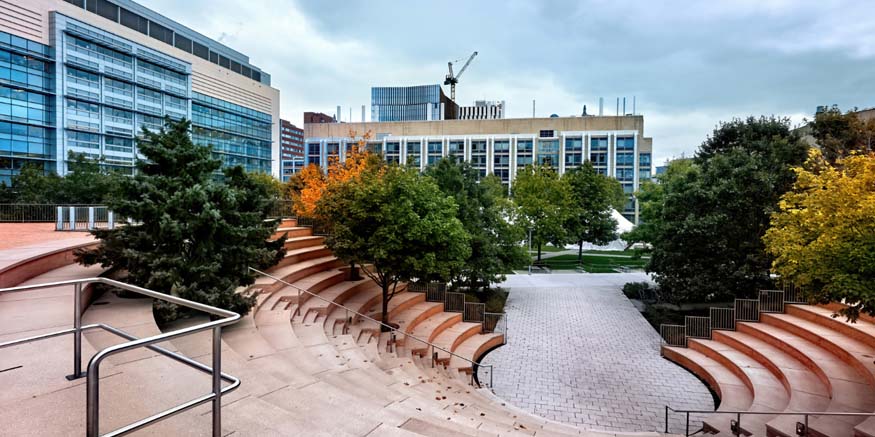Unquestionably one of the most prestigious and sought-after professional paths in India, the Indian Foreign Service (IFS) presents an unrivaled chance to lead the country’s efforts in foreign diplomacy. Establishing and upholding international ties depends on IFS workers. The supporters of India’s international presence are how they are often referred to as. We’ll also provide you with a detailed tutorial on how to begin the challenging but extremely fulfilling process of training to become an IFS officer.
The Crucial Role of an IFS Officer
Indian Foreign Service officers carry out a complex role that goes much beyond simple representation. Their mandate encompasses an array of indispensable responsibilities:
- Diplomatic Affairs: IFS officers play a crucial role in how India interacts with other countries.
- Consular Services: Serving as a lifeline for Indian citizens abroad, IFS officers provide invaluable consular services.
- Promoting Trade and Investment: Central to their mission is the fostering of economic cooperation and trade ties between India and other nations.
- Cultural Diplomacy: Beyond their role as political emissaries, IFS officers act as cultural ambassadors.
Also read : What is UGC? Know its History, Roles, and Functions?
A Day in the Life of an IFS Officer
The life of an IFS officer is a finely tuned symphony of diverse activities and challenges. Below, we provide a detailed panorama of what a typical day might encompass:
a- Morning Briefings: A typical day typically commences with meticulously curated briefings, where officers are meticulously updated on the latest political, economic, and social developments in their host country.
b- Meetings and Negotiations: The role of the IFS officer is engaged in high-stakes meetings and negotiations with diplomats, government officials, and representatives from other nations.
c- Consular Services: Whether it involves aiding Indian citizens in distress, expeditiously facilitating visa applications, or providing sagacious legal counsel, IFS officers leave no stone unturned in ensuring the well-being of their compatriots.
d- Cultural Activities: Nurturing cultural bonds is integral to the role of IFS officer and adroitly orchestrates cultural events, captivating exhibitions, and immersive exchange programs, which not only serve as conduits for promoting India’s cultural richness but also establish strong bridges of goodwill.
e- Research and Analysis: To navigate the ever-evolving global landscape with finesse, IFS officers are perennially engaged in rigorous research and nuanced analysis.
f- Travel: Extensive travel is often an integral part of their work, be it within the host country for a plethora of assignments or back to India for consultations, reporting, and strategic planning.
g- Social and Networking Events: Attending social gatherings and actively networking with diplomats and local dignitaries are integral aspects of their job.
Also read : The Challenges and Rewards of Being an IAS Officer
How to Embark on the Journey to Become an IFS Officer
The pathway to becoming an IFS officer is challenging but extraordinarily rewarding. Here’s a more detailed guide on how to actualize this illustrious aspiration:
- Educational Qualifications: The foundational step involves securing a bachelor’s degree in any discipline from a recognized university. While specific subject prerequisites are non-existent, a background in international relations or cognate fields can be an invaluable asset.
- Age Limit: Prospective candidates must fall within the age bracket of 21 to 30 years on the 1st of August in the year of the examination. Certain categories benefit from age relaxations, ensuring inclusivity.
- Civil Services Examination: The gateway to realizing the dream of becoming an IFS officer hinges on successfully clearing the Civil Services Examination, conducted meticulously by the Union Public Service Commission (UPSC).
- Language Proficiency: This requirement must be met in full, and proficiency in at least one foreign language is required. The UPSC examination rigorously evaluates linguistic prowess, as effective communication serves as the linchpin of international diplomacy.
- Training: Upon triumphant passage of the examination and subsequent selection for the IFS, candidates embark on an intensive training regimen at the renowned Lal Bahadur Shastri National Academy of Administration (LBSNAA) nestled in the picturesque expanse of Mussoorie.
Life as an IFS Officer: An Intricate Tapestry of Perks and Challenges
The life of an IFS officer is an enthralling odyssey marked by professional milestones intertwined with a unique set of privileges and trials:
- Job Security: One of the most appealing aspects is the unparalleled job security and stability that IFS officers enjoy as esteemed government servants.
- Foreign Assignments: IFS officers embark on a fascinating odyssey, with opportunities to work in diverse countries, immersing themselves in varied cultures and lifestyles. These international assignments are profoundly enriching both on a personal and professional level of foreign relations.
- Cultural Exposure: The privilege of promoting Indian culture through events, exhibitions, and cultural exchanges serves as a profoundly rewarding facet of the job. It is instrumental in fostering cultural ties and fostering goodwill.
- Challenging Work: Dealing with intricate international issues, engaging in high-stakes negotiations, and crafting diplomatic strategies are mentally stimulating aspects of their work.
- Long Working Hours: Diplomatic assignments often entail long working hours and irregular schedules, especially during international crises.
- Family Challenges: Frequent transfers and international postings can pose unique challenges for family life. Balancing personal and professional commitments is a skill that IFS officers continually refine.
Also read : IPS Officer – Power, Uniform, How to Become IPS Officer
Conclusion:
Becoming an Indian Foreign Service officer is a high aim that is strongly related to the passionate desire to represent one’s country on the international stage. These diplomats are not just representatives; they are architects of diplomacy, sculptors of foreign relations, and ambassadors of India’s ethos. While the journey to becoming an IFS officer is undeniably demanding, the rewards, both professional and personal, make it an exceedingly sought-after career choice. If you possess an unwavering passion for diplomacy, an unflagging commitment to serve your motherland, and the essential qualifications, then embracing a career in the IFS is a path that beckons. Thus, gear up, prepare meticulously for the Civil Services Examination, and embark on the transformative journey of becoming an esteemed IFS officer, resolutely representing India’s pride and ethos on the global stage.
A unique educational effort at EuroSchool, the Indian Foreign Service (IFS) Officer program aims to prepare young diplomats for the duties and challenges that come with a career in the Indian Foreign Service. A detailed education and insights into the complicated nature of negotiation, international relations, and the role of an IFS officer are provided in this program. It provides students with the information and skills required for success in the extremely competitive Civil Services Examination given by the Union Public Service Commission (UPSC), offering a singular blend of academic success and practical experience. As it helps in forming the future generation of IFS officers who will represent the nation’s foreign relations on a global level.









